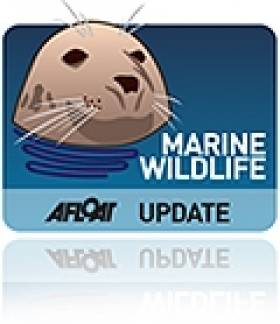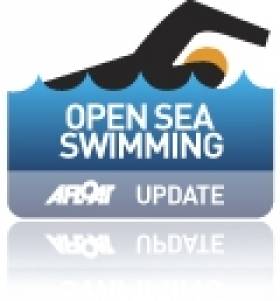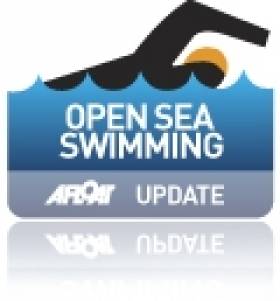Displaying items by tag: Oceans7 Challenge
Dolphins Guard Oceans7 Swimmer From Shark
#MarineWildlife - British long-distance swimmer Adam Walker has told of his lucky escape from a shark attack thanks to a protective pod of dolphins.
As the Irish Examiner reports, Walker was swimming 26km across the Cook Strait between New Zealand's main islands last week after spotting a shark on his tail.
But what happened next was even more remarkable, as he soon found himself surrounded by the cetacean bodyguards "protecting me and guiding me home".
Walker's swim of the Cook Strait was the penultimate stage in his attempt to be the first Briton to complete the Oceans7 Challenge, the open sea swimming equivalent of climbing the world's seven highest peaks.
He only has the Irish Channel left to swim to attain the accolade first claimed by West Cork endurance swimmer Steve Redmond two years ago.
Corkman Is Open Sea Swimming's Man Of The Year
#Swimming - Cork swimmer Steve Redmond has been named World Open Water Swimming's Man of the Year for 2012 for his record-breaking triumph in the Oceans7 Challenge last summer.
As the Southern Star declares: "Few individuals in the history of open water swimming have carried the heavy physical, mental, emotional and financial burdens that Stephen Redmond heaped upon his broad shoulders in 2012."
It marked the third year in a row that Redmond was nominated for the international award.
The Corkman had already conquered many of the world's toughest marathon swims - such as becoming the first person ever to swim from Baltimore to Schull around the Fastnet Rock - before setting sights on the Oceans7 Challenge, the open sea swimming equivalent of climbing the world's seven highest peaks.
As previously reported on Afloat.ie, he completed the final leg of the challenge when he crossed Japan's Tsugaru Strait in mid July, beating Australian marathon swimmer Penny Palfrey to the coveted accolade.
Record-Breaking Corkman Completes Oceans7 Challenge
#OPEN SEA SWIMMING - An Irishman has become the first ever person to complete the open sea swimming equivalent of climbing the seven highest peaks, as The Irish Times reports.
Steve Redmond from West Cork completed the final leg of the Oceans7 Challenge when he crossed Japan's Tsugaru Strait with a time of 14 hours 24 minutes on Saturday.
According to the Irish Independent, the 47-year-old father of two - and nominee as World Open Water Swimming Man of the Year in 2011 - began his challenge back in 2009 by swimming across the English Channel.
That feat was followed by crossings of the North Channel between Scotland and Northern Ireland, the Strait of Gibraltar, the San Pedro Channel south of Los Angeles, the Moloka'i Channel in Hawaii, and the Cook Strait between New Zealand's north and south islands.
Aside from braving dangerous currents and the treat of sharks and stinging jellyfish, Redmond had to fend off a number of other challengers for the coveted title - including Australian marathon swimmer Penny Palfrey, who was just one crossing away from the record.
Redmond's now set to return to a hero's welcome in his hometown of Ballydehob this evening.
































































